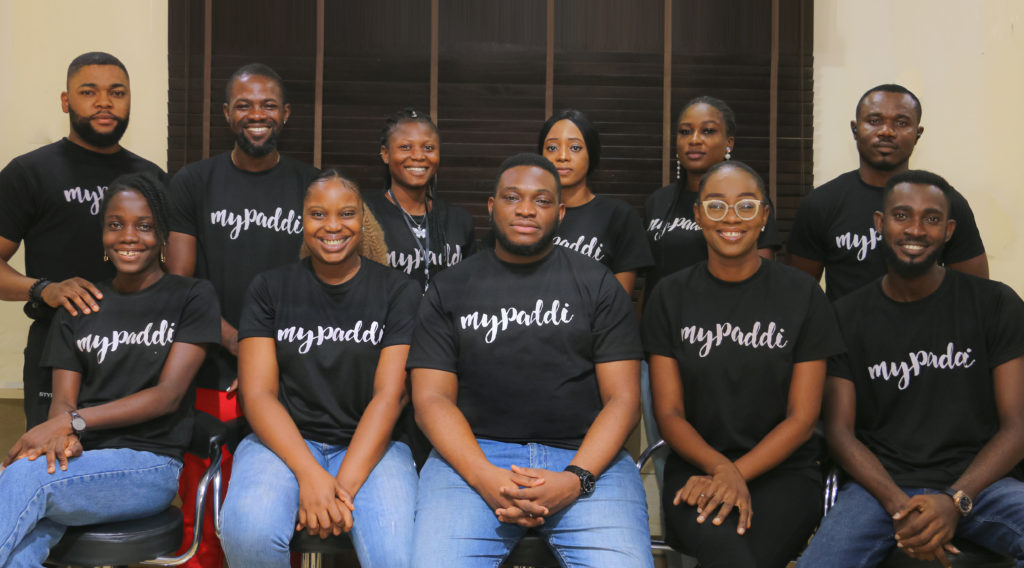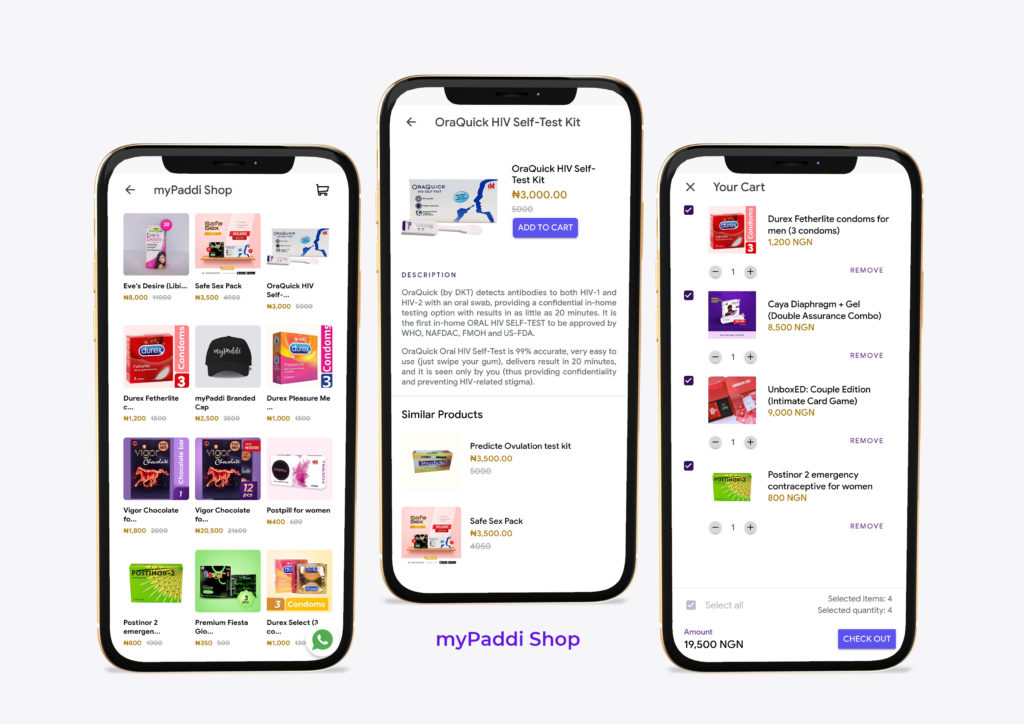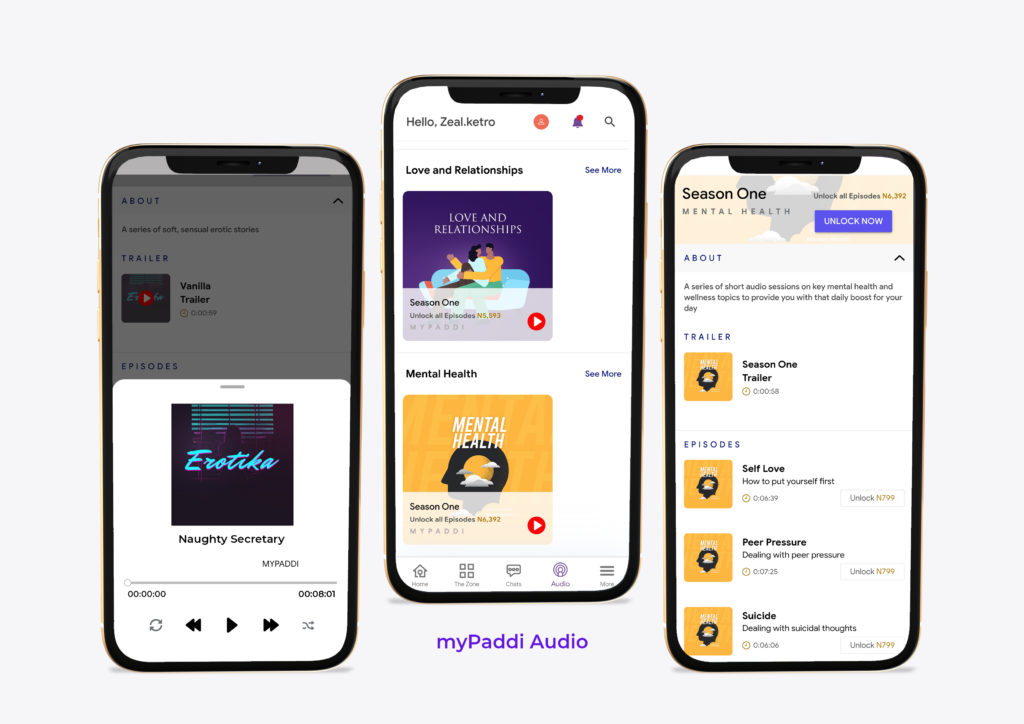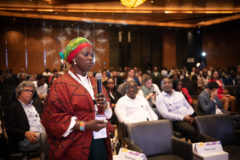
When two medical school classmates from the University of Benin, Dr. Charles Immanuel Akhimien and Dr. Emmanuel Owobu co-founded MOBicure in 2015, they had a clear idea of what they wanted their Digital Health company to be and the peculiar problems they intended to solve with it. MOBicure was to be a Nigerian startup that provides relevant mobile technology solutions to pressing health issues in developing countries, starting with Nigeria.
Their first product would be Omomi, a maternal and child health application designed to reduce childbirth mortality. After three years with nearly 40,000 users on the platform and countless lives impacted, Charles and Emmanuel felt something was still missing.
According to the WHO, about 20% of global maternal mortality happens in Nigeria. Since a fifth of these pregnancies is unintended, young girls bear the brunt of the problem. While Omomi was actively solving the problem of maternal deaths in Nigeria, the problem of how unintended pregnancies come about in the first place remained, and more than that, it festered. The two founders believed the two problems were interconnected. To effectively solve the former, they had to also tackle the latter.
“Young people in Nigeria didn’t have anywhere they could talk about sex.” Dr. Akhimien says. “In many ways, sex is still a taboo topic. It’s not a topic you talk about at the dinner table. And the consequence of this is that we have a low contraceptive uptake in Nigeria, a high rate of unintended pregnancies, and ultimately, unsafe abortions and death.”
Dr. Akhmien tells me that contrary to what Nigerian conservatives will have you believe, the fact was, and still is, that young people are having sex, lots of it. But mostly unsafely. It was a harmful blend of uninformed experimentation and scintillating vibes. Pick twenty young Nigerians at random and you would be surprised at how little they know or care about safe sex.

This is evident in the spike in the number of people living with HIV in Nigeria, 40% of which are young people between the ages of 15 and 24.
According to Dr. Akhimien, they noticed that while their product, Omomi, was effectively serving pregnant women and mothers, young people were being left behind. Something had to be done and soon.
Be Free, Be You!
In July 2018, MOBicure rolled out a new app for young people called myPaddi.
As every Nigerian knows, myPaddi is a play on the popular slang “paddi” from the Pidgin English lexicon which essentially means “best friend.” In the months and years that would follow its release, this is exactly what the myPaddi app would become to tens of thousands of young adults in Nigerian and across Africa. As of June 2021, the app had 90,939 active users from 16 African countries.
The mission of the myPaddi app was simple: to be a safe safe space for young people to anonymously and freely talk about sex. Although, this would later grow to include an important feature that gives users unhindered access to accurate and bias-free sexual resources.
It all goes down in “The Zone”
The app was built in such a way that allows users to be decidedly anonymous and their interactions assuredly safe. A vibrant live community called The Zone was created in the app for users to create posts or ask questions about sex. Finally, young people were talking about sex, freely and safely. But was that enough?
“We soon saw that it was not enough for young people to talk about sex,” Dr. Owobu remembers. “We saw that the users also needed accurate information about their sexual and reproductive health.”
This was how doctors were added to The Zone. They were to answer questions and provide fact-based information about sexual and reproductive health.
The evolution of myPaddi App
As more users began to register on the app, a pattern soon began to emerge. While users put up questions or created posts on any number of topics, some started to require personal sessions to talk about deeply personal things they couldn’t share in the zone. The users needed more, so the myPaddi app became more. That’s how the chat-a-doctor feature in the app was born.
Users could now subscribe for a fee to chat with doctors privately. Then, something else happened.
As users began to chat with doctors on the app, it became clear that young people were struggling with issues other than and often even more complicated than sexual and reproductive health issues. Many were struggling with mental health issues.
Dr. Akhimien recall instances during private chats where users were trying to get help for their depression, sexual abuse, post-traumatic stress disorder, impostor syndrome, gender-based violence, to mention only a few.
“This realization was quite as shocking as it was disturbing for us. It was especially sad because we also realized very quickly how unequipped we were to help these users.”
But the ever innovating myPaddi team wouldn’t let that snag stop them from doing what they set out to do for young Nigerians in the first place, help. A few months later, they launched a new feature that will include certified therapists in the app. These therapists were known as counselors. And just like for doctors, users could also now chat with counselors.
Order anonymously, Deliver discreetly
Once myPaddi became successful with giving young people a safe place to talk about sex and sexual health issues, another pressing issue arose. Users needed to be discreetly linked to actual sexual health products. Otherwise, current services would be counterintuitive.

On one hand, doctors on the app were rightly advising users to get tested for HIV or have protected sex. On the other hand, young people were still actively being faced with sneers and snide remarks from not just self-anointed moral police, but also health personnel who should know better.
Albeit tasking, the founders immediately knew what they had to do. They would get test kits, contraceptives, and other sexual health products and somehow get it discreetly across to interested users in a prompt manner. Just like that, myPaddi shop humbly began. The initial plan of the myPaddi shop was to only test kits and sell contraceptives.
Dr. Owobu says they continued like this for a month until they noticed a lag between sexual health and sexual pleasure. While a good number of outlets were talking extensively about STI prevention and contraceptive use, anyone hardly talked about pleasure. There became a gap they needed to bridge.
They soon included sexual wellness products such as sex toys, BDSM kits, lingerie, etcetera, in the shop. The first few weeks saw only a handful of orders. All that would, however, change sometime in December of 2019.
The way Dr. Akhimien tells it, a woman needed a vibrator and ‘DMed’ them on Instagram to place an order. By the time they finished fulfilling that order discreetly, they saw a new opportunity.
Beyond selling sexual products to users on the app, they realized they could also sell to non-users through their various social media channels. This was, at the risk of sounding unphysical, the rebirth of the myPaddi shop. It has been a rollercoaster since then.
So far, myPaddi has made over 10,000 deliveries to 46 cities in Nigeria and 4 cities (Cairo, Toronto, Doha, and Nairobi) across 3 continents.
Now, you can still order products on the myPaddi app, myPaddi online shop, and across all their social media platforms. You place your order anonymously and they will get it delivered discreetly. The way they do this is simple.
“Let’s say you’ve already picked a product from the shop and made payment,” Kachi Nwizu, myPaddi’s Head of e-retail, explains. “Once we’ve confirmed your payment, we’ll wrap your time in a nondescript package. Confirm your location. Send it to you. Then send the tracking number to you.”
“You will get it in no time. And no one, except you, can know what you ordered. Your secret is safe with us,” Nwizu added with the air of someone that has successfully done this countless times.
Dr. Akhimien believes that the company’s decision to start a shop is still one of the most intuitive the company has ever made.
When asked to expatiate, he just smiled and said, “It’s all there in the numbers.”
UnboxED games
To further deepen the knowledge of sexual health and the practice of safe sex, the myPaddi team has so far, designed and released three editions of the myPaddi UnboxED game. The First is the Family Edition which serves to aid parents and guardians to airily teach their adolescents and teenagers sex education, effectively removing the awkward edge.

Then, there’s the 18+ Edition which, in line with myPaddi’s mission, lets young people breezily talk and learn about sex in a safe and fun way. Soon after its launch, the 18+ Edition became a quick favourite at house parties, picnics, universities circles, and typically anywhere young people were gathered to have fun.
The third and latest edition is the Couple Edition. It helps reinvent sex and reignite intimacy between lovers even as they are having fun.
All-new audio feature
myPaddi also has a new audio feature on the myPaddi app. There are currently three offerings—EROTIKA, Mental Health Podcast, and Love & Relationship podcast.

The EROTIKA features erotic audio stories offered in both English and Pidgin English. The Love & Relationship and Mental Health podcasts explore various topics around romance and mental health respectively.
Moving forward
In just three years, myPaddi has come a long way from an app that enabled a safe space for young adults to talk and learn about sex to a wholesome platform that caters to the sexual and reproductive health needs of young people in Nigeria and across Africa.




















